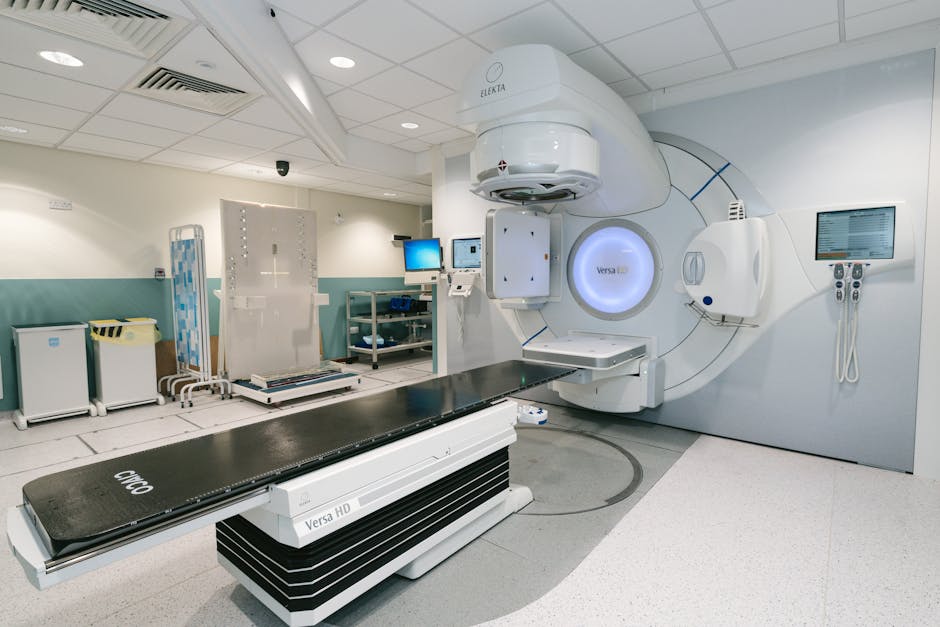The Role of Radiation Therapy in Mesothelioma Treatment
Mesothelioma, a rare and aggressive cancer primarily caused by asbestos exposure, poses significant treatment challenges. Among various treatment modalities, radiation therapy plays a pivotal role in managing this disease. This blog post delves into how radiation therapy contributes to mesothelioma treatment, providing insights into its benefits, methodologies, and patient outcomes.
Understanding Mesothelioma
Mesothelioma is a malignancy that affects the lining of the lungs, abdomen, or heart, known as the mesothelium. The most common form, pleural mesothelioma, occurs in the lining of the lungs. According to the American Cancer Society, approximately 3,000 new cases are diagnosed annually in the United States.
Causes and Symptoms
The primary cause of mesothelioma is exposure to asbestos fibers, which can become lodged in the mesothelium, causing irritation and eventually cancer. Symptoms often include shortness of breath, chest pain, and fluid buildup around the lungs. Due to a long latency period, symptoms may not appear until decades after exposure.
The Basics of Radiation Therapy
Radiation therapy uses high-energy rays or particles to destroy cancer cells. It is a localized treatment, meaning it targets specific areas of the body, making it ideal for treating tumors in defined locations. This approach minimizes damage to surrounding healthy tissues.
Types of Radiation Therapy Used in Mesothelioma
There are two main types of radiation therapy used in mesothelioma treatment:
- External Beam Radiation Therapy (EBRT): The most common form, where a machine directs radiation at the cancer from outside the body.
- Brachytherapy: Involves placing radioactive material directly inside or near the tumor. Although less common in mesothelioma, it provides targeted treatment.
The Role of Radiation Therapy in Mesothelioma Treatment
Radiation therapy is often part of a multimodal treatment strategy, which may include surgery and chemotherapy. Its role varies depending on the stage of the disease and the patient’s overall health.
Pre-Surgical Radiation
In some cases, radiation therapy is administered before surgery to shrink tumors, making them easier to remove. This approach, known as neoadjuvant therapy, can improve surgical outcomes and reduce the risk of cancer recurrence.
Post-Surgical Radiation
After surgery, radiation therapy may be used to eliminate microscopic cancer cells that were not removed. This adjuvant therapy can help prevent recurrence and prolong survival.
Palliative Radiation
For patients who are not candidates for surgery, radiation therapy can be used palliatively to relieve symptoms such as pain, difficulty breathing, and chest discomfort. This application aims to improve quality of life.
Benefits of Radiation Therapy in Mesothelioma Treatment
Radiation therapy offers several benefits in managing mesothelioma:
Targeted Treatment
Radiation therapy allows precise targeting of cancerous cells, sparing healthy tissue and reducing side effects compared to systemic treatments like chemotherapy.
Reduced Tumor Size
By shrinking tumors, radiation can alleviate symptoms and make surgical removal more feasible, particularly in patients with advanced disease.
Improved Survival Rates
When integrated with other treatments, radiation therapy has been shown to improve overall survival rates. Studies indicate that combining surgery, chemotherapy, and radiation can extend survival to over a year, compared to months with no treatment.
Potential Side Effects of Radiation Therapy
Like all treatments, radiation therapy is not without side effects. Patients may experience:
Skin Reactions
Patients might experience skin irritation, redness, or blistering at the treatment site. These effects are generally temporary and manageable with topical treatments.
Fatigue
Fatigue is a common side effect, often accumulating over the course of treatment. Strategies such as rest, nutrition, and exercise can help manage this symptom.
Respiratory Issues
In pleural mesothelioma, radiation can cause respiratory issues, such as shortness of breath. Patients should discuss any new symptoms with their healthcare provider immediately.
Advancements in Radiation Therapy for Mesothelioma
Recent advancements have improved the precision and effectiveness of radiation therapy, reducing side effects and enhancing patient outcomes.
Intensity-Modulated Radiation Therapy (IMRT)
IMRT allows for more precise targeting of tumors by modulating the radiation dose, reducing exposure to healthy tissues. This technique is particularly beneficial for treating complex tumors.
Proton Therapy
Proton therapy is an emerging treatment that uses protons instead of traditional X-rays, allowing for even more precise delivery of radiation. It holds promise for reducing side effects and improving outcomes in mesothelioma patients.
Actionable Tips for Patients Undergoing Radiation Therapy
If you’re undergoing radiation therapy for mesothelioma, consider the following tips to optimize your treatment and manage side effects:
Stay Informed
Understand your treatment plan, including the type of radiation therapy you’ll receive and its goals. Discuss any concerns with your healthcare provider.
Maintain a Healthy Lifestyle
Focus on a balanced diet, regular exercise, and adequate rest. These habits can help manage fatigue and improve your overall well-being.
Monitor Side Effects
Keep track of any new or worsening symptoms. Promptly report them to your medical team to ensure timely management and support.
Conclusion
Radiation therapy plays an essential role in the treatment of mesothelioma, offering targeted relief and improving survival outcomes. As part of a comprehensive treatment plan, it can provide significant benefits, from shrinking tumors to alleviating symptoms. By understanding the potential advantages and side effects, patients can better navigate their treatment journey and maintain a higher quality of life.
For those affected by mesothelioma, staying informed and actively participating in treatment decisions is crucial. With continued advancements in radiation therapy, the future holds promise for even more effective and personalized mesothelioma care.

